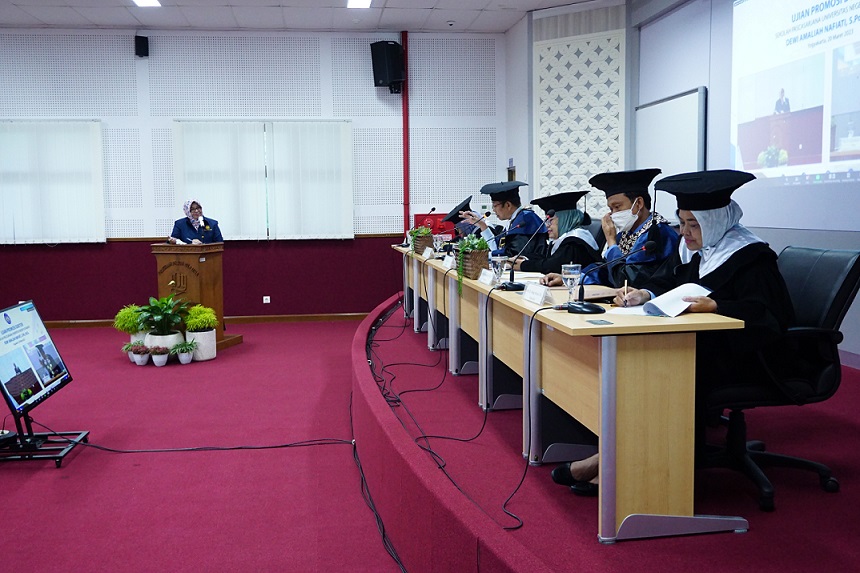You are here
DEVELOPMENT OF START-UP ENTREPRENEURSHIP LEARNING MODELS TO MAKE UP ENTREPRENEURSHIP ATTITUDE AND IMPROVE INTERPERSONAL COMMUNICATION SKILLS OF STUDENT TEACHER
Primary tabs

Dewi Amaliah Nafiati successfully defended her dissertation entitled "Development of Start-Up Entrepreneurship Learning Models to Make up Entrepreneurship Attitude and Improve Interpersonal Communication Skills of Student Teacher" with the predicate of Summa Cumlaude. Her research aims to produce a start-up entrepreneurship learning model to make up an entrepreneurial attitude and improve interpersonal communication skills of student teacher, then test the feasibility, analyze the practicality, and test the effectiveness of the resulting learning model.
According to Dewi, this research has urgency because to make up an entrepreneurial attitude is an alternative in welcoming the Industrial Revolution 4.0 era. Using the research and development method developed by Borg & Gall, Dewi took the research subject student teacher at three private university in the LLDIKTI 6 eks area, Pekalongan Residency. Then, the data collected through questionnaires, interviews, observation, and documentation.
In the limited trial test carried out with one group pretest posttest design and data analysis techniques using the t test. The trial was expanded by carried out with a pretest and posttest control group design and analyzed using the Z test. From the research conducted by students of Education Science Study Program SPS UNY, the start-up entrepreneurship learning model was designed based on the steps of R & D development research from Borg and Gall with the characteristics of the 5E start-up principle in the implementation of learning. The learning is carried out with supporting learning tools including RPS, pictures/videos, and assessment tools.
The start-up entrepreneurship learning model was validated by content/material experts, design experts, media experts and resulted the feasibility with a high category. Then the trial test of the start-up entrepreneurship learning model in practicality/implement skills results are practical learning syntax used in the good category, practical social systems used in the very good category, practical reaction principles used in the good category, and practical support systems implemented in the very good category. "The effectiveness test shows that the start-up entrepreneurship learning model is effective to make up entrepreneurial attitudes and improving student teacher interpersonal communication." conclude the lecturer from the Panca Sakti University of Tegal. (ant)
SEKOLAH PASCASARJANA UNY
Kampus Karangmalang, Yogyakarta 55281
Telp. +62274-550836 (front office)
Fax. +62274-520326 Email: pps@uny.ac.id, humas_pps@uny.ac.id
Website : http://sps.uny.ac.id
Copyright © 2024,



